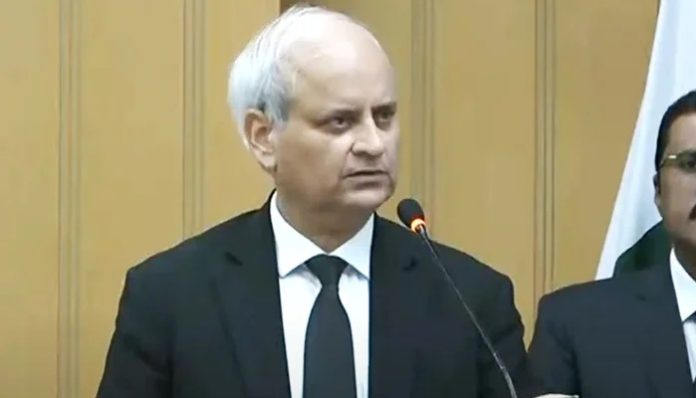DNA
RAWALPINDI: Lahore High Court (LHC) Chief Justice Malik Shehzad Ahmed Khan on Friday said he believes that interference of the establishment in the matters of the judiciary will end soon.
“Interference in the judiciary will have to be fought with faith that it will come to an end,” said the LHC chief justice while addressing the opening ceremony of the judicial complex e-courts in Rawalpindi.
Justice Khan said there was an issue of establishment’s interference in the judiciary’s matters, adding that they receive letters claiming involvement in the judicial affairs.
“The establishment’s interference in judiciary will end soon and I have an experience that this will end,” said the judge, assuring that these difficulties will end if there is fear of God.
The chief justice’s comments came after six Islamabad High Court (IHC) judges wrote a letter Supreme Court on March 25, accusing spy agencies of meddling in judicial affairs.
The IHC judges had demanded Chief Justice of Pakistan Qazi Faez Isa to convene the judicial convention to consider the matter of alleged interference of intelligence operatives in the judicial functions or “intimidation” of judges in a manner that undermined the independence of the judiciary.
The six IHC judges — Justice Mohsin Akhtar Kayani, Justice Babar Sattar, Justice Arbab Muhammad Tahir, Justice Tariq Mahmood Jehangiri, Justice Sardar Ejaz Ishaq Khan and Justice Saman Rifat Imtiaz — had written a letter to the chief justice, who is also chairman of the Supreme Judicial Council (SJC).
Speaking about the issues in the judiciary, the LHC CJ said delay in verdicts of cases is the biggest problem. “Three generations [of a family] wait for verdicts and it [sometimes] take 30 years,” he lamented.
Justice Khan maintained that the cases are delayed because of the unavailability of witnesses, adding that he has consulted with high court judges to solve the issues.
He said that the people living overseas had trouble appearing before the court.

















